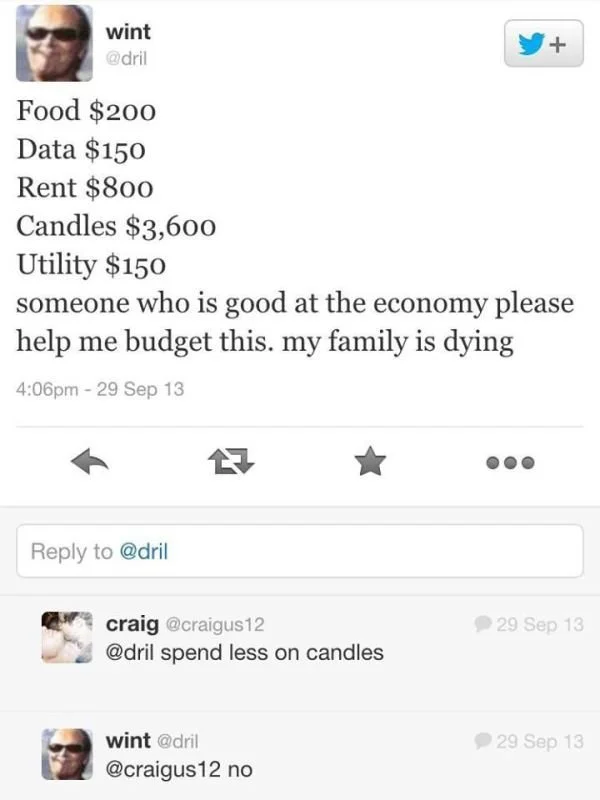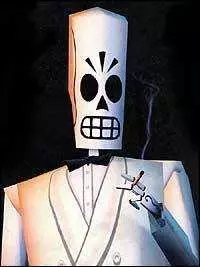When I was a teen, my older brother told me how he got trapped in a cycle of buying candles for light when his electricity was shut off. He thought, “I could pay this damn power bill if I didn’t have to buy so many candles!”
I got trapped in a similar poverty cycle years ago. I couldn’t replace broken dish-ware because I kept having to buy disposable plates for my meals. My mother bought me some cheap plates for xmas that year to break the cycle.
It’s the fallacy of the cheap boots. A rich person can buy nice boots that last ten years. A poor person has to buy cheap boots that need to be replaced every few years. In the end, the poor person spends more on boots with less to show for it.
Is this your brother?

For all my broke homies, target has some incredibly cheap plastic plateware. a single bowl plate and cup are only like $3 total. You will be cleaning a lot of dishes but still cheaper than disposable.
It’s expensive being poor. On the other hand you have rich people getting free stuff and avoiding paying tax on their wealth.
That’s why company bonuses are good
I don’t get it. Cheap plates are so inexpensive why couldn’t buy it? I mean, on a quick search I could find one for 1,79€
deleted by creator
Candles are way too expensive for this. I’m sure you could get a solar lantern at the “99¢” store.
Amateurs not saving all their earwax for candles smh
Life pro tips with Shrek.
Two things:
-
see if your power provider offers an “equal pay” plan, where your payments are normalized over 12 months. This provides consistency.
-
Budget Budget Budget! Keep track of your monthly income and expenses, and plug this equal pay into it.
Often times your power company will let you do equal pay before having 12 months of usage history.
The one thing is that if you use more than you’re paying for, you have to pay the overage at the end of the 12-month cycle, AND your payments increase. So, don’t get used to leaving all the lights on!
On the flip side, if you use less, you’ll either get a refund or accumulate credits which will lower your next year’s payments.
-
There will never be enough 40 year old virgin memes.





